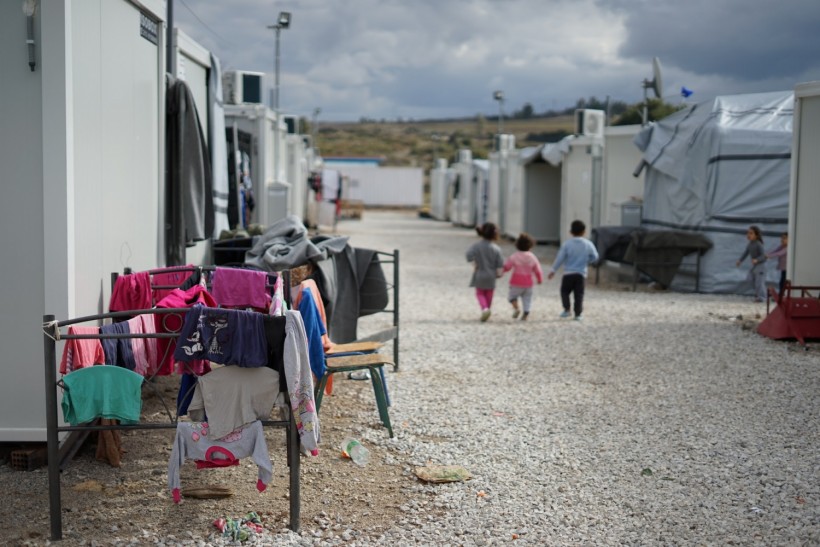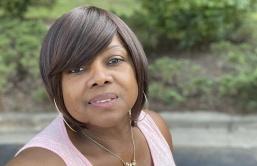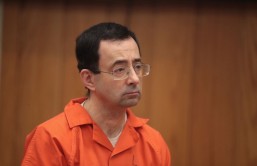
(Photo : Photo by Julie Ricard on Unsplash)
Former chairman of the Syrian American Alliance, Mahmoud Khattab worked diligently to help Syrian refugees who have fled the chaos-laden country.
The Syrian American Alliance is one of five organizations that comprise the Coalition for a Democratic Syria. Together, they have established a comprehensive agenda designed to force action to end the tragic plight that has affected the Syrian people, forced massive relocations and horrible conditions in refugee camps.
For Khattab, the move from medicine to politics comes from a deeply engrained passion for his home country. A graduate of the University of Damascus School of Medicine and the Case Western Reserve School of Medicine, Khattab is the CEO of Precision M.D. in Elk Grove, California.
His passion and commitment are focused deeply on righting the wrongs he perceives in his home country.
Civil War Comes to Syria
In March 2011, massive anti-government protests against the Ba'athist government began throughout Syria. The protests grew into a civil uprising that led to civil war.
Khattab began working with activists in Sacramento, California, days after the uprising began, meeting with officials about the brutality under the Syrian government's regime. The group expanded their outreach to San Francisco and the Bay area to raise awareness of the issues facing the Syrian people.
Khattab became involved with the Syrian American Council, serving as chairman of the national organization for nine months. He and other leaders began organizing various Syrian-American groups within the United States, focusing on four Washington, D.C.-based groups that had been doing lobbying work.
Those four groups, the Syrian American Council, the Syrian Expatriates Organization, United for a Free Syria, and the Syrian Emergency Taskforce, were organized under the umbrella organization, the Coalition for a Democratic Syria. Khattab was elected chair of the eight-person coalition board.
Months thereafter, Syrian-American activists sought to call attention to developmental and educational initiatives inside refugee camps. From there, the Syrian American Alliance was born. It became the fifth coalition member.
The coalition's main mission is to establish a free and democratic Syria by supporting the revolution on the ground. It also seeks to create a civilized, new system that provides equal rights for all Syrians. The coalition focuses its work in Washington, meeting regularly with senators and representatives, and with officials at the White House and State Department, presenting recommendations for possible solutions to the crisis.
Raising Awareness a Core Mission
The group also works on public awareness campaigns about the conditions within Syria.
Seventy-five percent of the Syrian American Alliance's work is developmental, according to Khattab, working in close coordination with the coalition. One project was a Walk for Syrian Chilen held in 25 cities in 25 countries in partnership with UNICEF.
The goal for much of the alliance's work is to increase public awareness about the suffering of the Syrian people and to secure financing for projects within the country. One such project, Electronic School, was designed to develop virtual schools to help the thousands of chilen left without educational access. Another was to provide psychiatric care for chilen living in refugee camps and suffering from PTSD.
The group also produces videos and news materials to keep people apprised as to what is happening in the country, raise awareness about positive aspects of the revolution, remind people that its intent is peace, and teach the Syrian people about human rights and developing a free and democratic country. The messaging is an important way to keep the Syrian-American community to activists on the ground.
Syrian Peace Provides Regional Stability
During the decade-long conflict, many U.S. adversaries, notably Russia and Iran, have sided with the Syrian government. One of the reasons the coalition's organizations spend so much time advocating with the U.S. government is to remind officials that it is in the United States' best interests to have stability in the Middle East. From a national security perspective, Khattab notes, peace will have a positive impact on Jordan, Lebanon and Turkey and the entire region.
A weakened Syrian government, given its ties to Iran and Hezbollah, could have an enduring impact.
Khattab expressed frustration with the past work of United Nations missions to have an impact. With Russian and Chinese vetoes in the U.N. Security Council, that organization is essentially powerless, he said.
Advocating for a No-Fly Zone
From its earliest days, the Syrian American Alliance has been a vocal advocate for the creation of a U.S. no-fly zone over Syrian airspace. Khattab said revolutions are imperfect and that there has been much criticism of the push for such a policy.
However, he noted, most of this opposition has occurred outside of Syria. Creating such zones, he noted, would allow for a protected area where soldiers could be organized within the country. He has long advocated for a range of support; in addition to the no-fly zone, he has believed that providing training and arms to well-trained soldiers in the Free Syrian Army would result in better action against the Syrian government.
Khattab noted that the coalition has been unwavering in its push for continued Western backing of the revolutionary movement, including the no-fly zone, training and equipping of the rebel factions.
Support for Minority Populations
Khattab and the coalition have also long expressed support for various religious and cultural minority populations within Syria. While President Bashar al-Assad identifies as an Alawite, Khattab noted that the Alawites are decent, honest and kind people. Many of them have been forced into military service and put on the front line, in addition to other abuses.
He noted that his organizations have spoken to many Alawites who are distinctly opposed to the situation within their country. The same goes for other ethnic and religious minority groups, Khattab said, including the Kurds, Christians and uze.
While there are major differences among many of these groups, Khattab believes that a unified opposition to the Assad regime could lead to a future where these many different Syrian people could live together peacefully. In addition, he believes that that unity could result in the establishment of a system that provides equal rights for each Syrian citizen.
* This is a contributed article and this content does not necessarily represent the views of hngn.com








